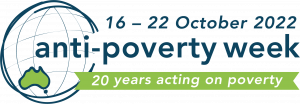
To access the Zoom link and attend this event online please email us: engagement@lifecoursecentre.org.au
There are two broad ‘social facts’ across societies that are usually analysed separately but which are, in reality, intimately connected: the inverse association between social and economic position (SEP) and health (known as the ‘social gradient in health‘) and the strong association between family environment and a child’s subsequent educational and occupational attainment (known as the ‘reproduction of social position’). Rather than being separate issues, these stylised facts actually share a common origin in a process which I term ‘embodiment’ where individual physiology and psychology come to embody socio-structural position. Embodiment shapes individual health and life chances and through this, forges societal inequalities in health and social position across social groups. Using the work of Pierre Bourdieu and evidence from longitudinal studies from across the life course, the seminar will explore the mechanisms through which social and economic environment shapes us and the policy implications of this.
Richard Layte is a Professor of Sociology. Much of his work stems from a core interest in the structure of social and economic stratification in modern societies and its impact on individual life-chances, health and well-being. His research examines the fundamental processes which influence the distribution of health and well-being in societies and how these are shaped by political economy and the structure and functioning of health care systems. He has a particular interest in improving understanding of how family background influences child health and development and the impact this has on the child’s educational outcomes, adult health and life expectancy. Recent work has examined whether the ‘Great Recession’ in Ireland had an effect on child health and development (the short answer is that it did in several very important ways), the pathways and mechanisms through which these effects occurred and the implications of this for life course models of health and well-being. He has a keen interest in the intersection of social, psychological and biological science and works with colleagues across a range of disciplines.